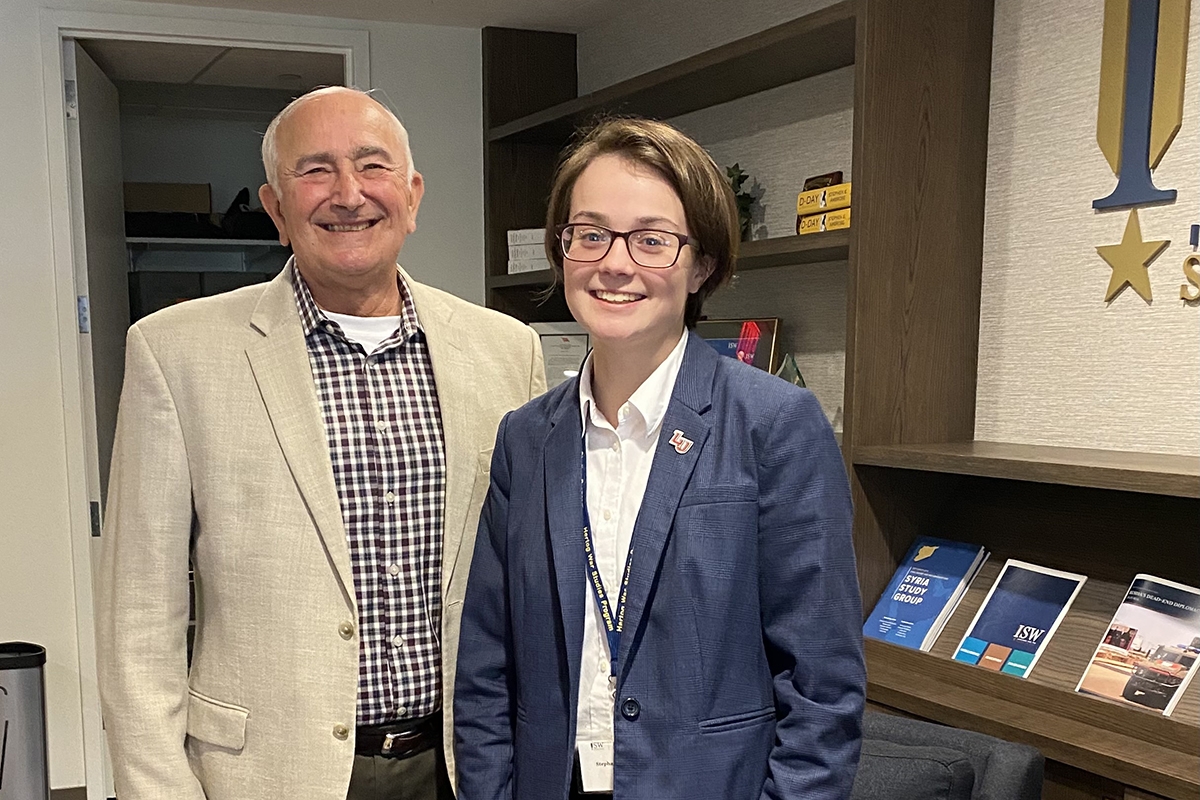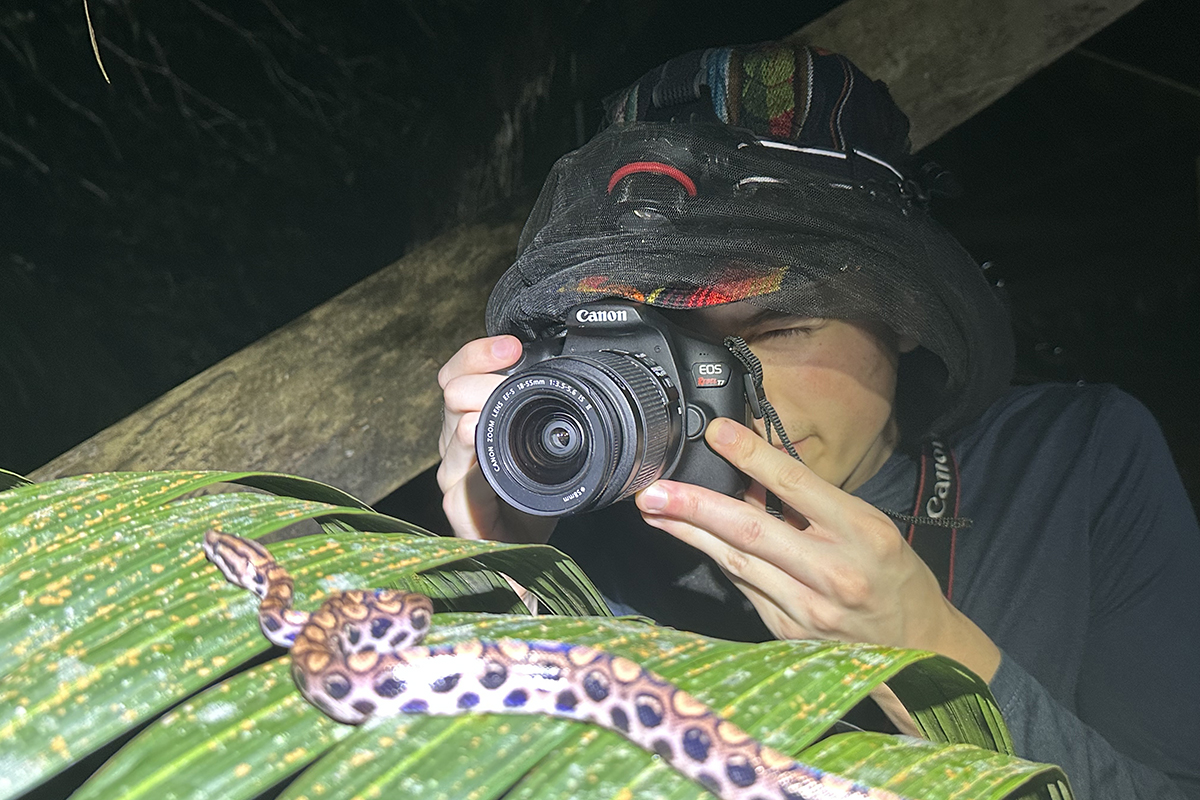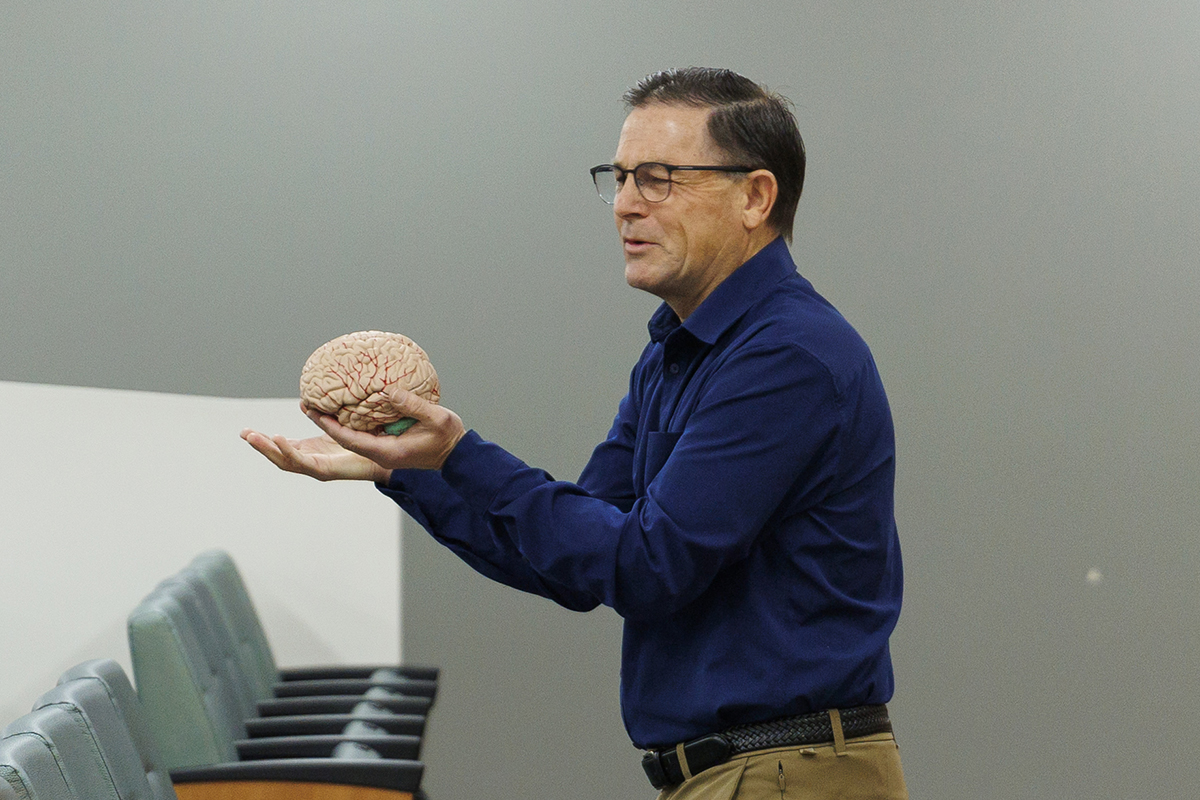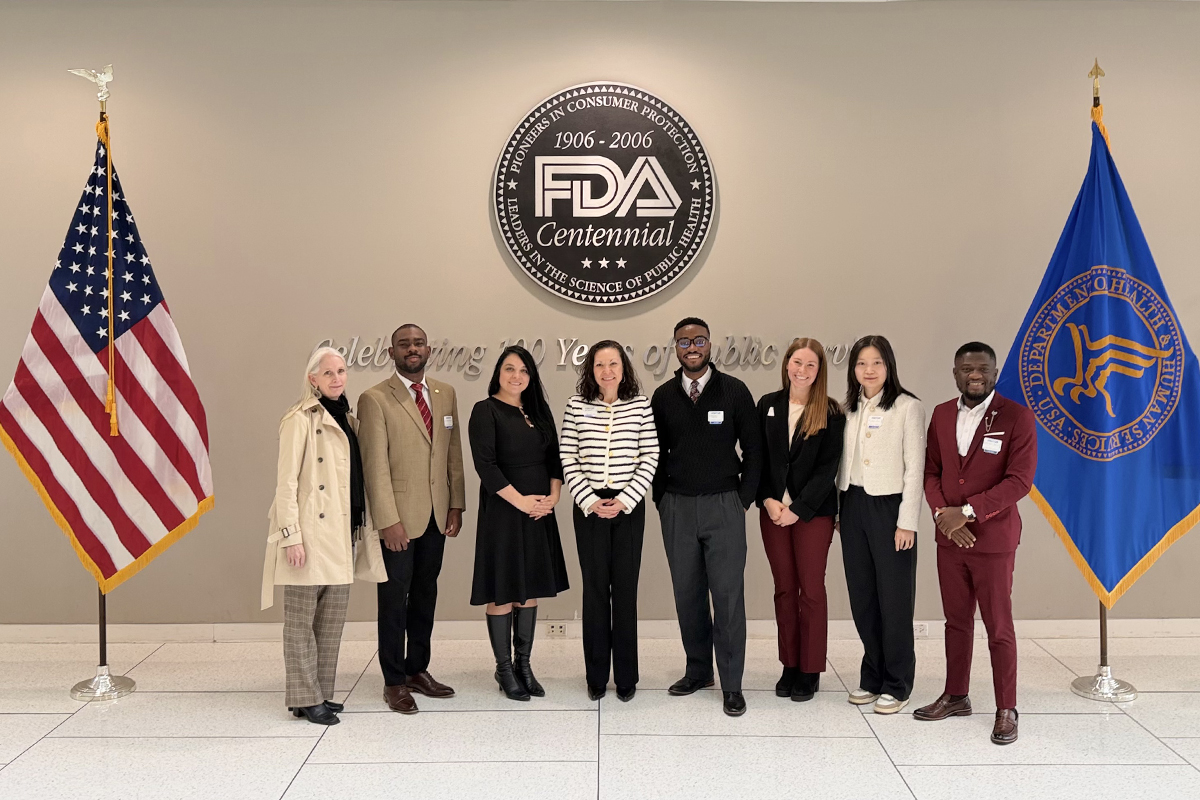Graduate student from long line of military members participates in distinguished military history program in D.C.
September 23, 2021 : By Ryan Klinker - Office of Communications & Public Engagement

Having come from a family with five generations of military service but medically disqualified to join the armed forces herself, Liberty University graduate student Stephanie Wright said that studying history with a focus on military studies is her way of retaining her family’s connection to the military.
“My dad is in the Air Force, his dad was in the Army, his dad was in the Navy — someone in my family has served in every branch,” Wright said. “I thought a way to serve is to study and understand military history so that I can help better prepare for future wars. If you don’t understand the past military battles, then your mistakes are going to cost lives. Plus, it’s really fascinating anyway, so it’s been a lot of fun studying it.”
Wright graduated in May with her Bachelor of Science in History, with a minor in military history, and is in her first year of the Master of Arts in History at Liberty. After graduation, she spent 16 days last summer taking part in the prestigious Hertog War Studies Program, an intensive from the Institute for the Study of War located in Washington, D.C. Designed to educate the next generation of national security leaders, the program features curriculum on the theory, practice, organization, and control of war and military forces, all led by leaders from ISW and retired high-ranking military officials.
“Interacting with high-ranking officials like General David Petraeus, General H.R. McMaster, General James Dubik, and General John R. Allen was an amazing opportunity to learn from the leaders who not only experienced events like the Gulf War and the Surge in Afghanistan, but also directly impacted their success.”
Following the recommendation of history professors Robert Ritchie and Dr. David Snead, Wright applied for the program and was one of only 18 students, primarily from the U.S., admitted from the field of over 200 applicants.
“ISW is a nonpartisan think-tank group that tries to bridge the gap between the academic understanding of military history and the actual implications of foreign policy,” Wright said. “It was a phenomenal program, and I hope to work with them in the future.”
Analyzing the evolution of military technology — from trains used by the Prussians to the potential future of artificial intelligence on the battlefield — the group also studied counterinsurgency and walked the famous field of Gettysburg, Pa., with General Allen, former Commandant of the Marine Corps. Standing on the ground where a pivotal Civil War battle was fought nearly 150 years ago, the experience reminded Wright of the humanity sometimes forgotten when studying warfare.
“We got to march across the open field on the exact path the Confederates would have taken just to bring forth the human element of war,” Wright explained. “A lot of times we read the casualty numbers and don’t really remember those as being people, so it was really bringing that human element.”
She said her courses in military history at Liberty proved to be great preparation for the intensive program.
“Immediately upon graduating in May I was able to use what I had learned (for the Hertog Program),” she said. “Liberty is one of less than a dozen colleges that have a military studies focus, so in many aspects I had an advantage over other students in the program because I had that military history background.”
While she noted that politics was not a central theme of the program, Wright said there were instances where she interacted with students who held differing viewpoints regarding past military events and current operations. She said Liberty prepared her for this healthy debate as well.
“Something important that Liberty does differently is it trains us to be leaders and think for ourselves, but it also teaches us to be willing to look at things differently and have an open mind,” she said. “I’m very thankful and grateful for the opportunities that Liberty and the history department have given me, and they’ve encouraged me to go beyond what I thought I could and do what I’ve done so far.”


